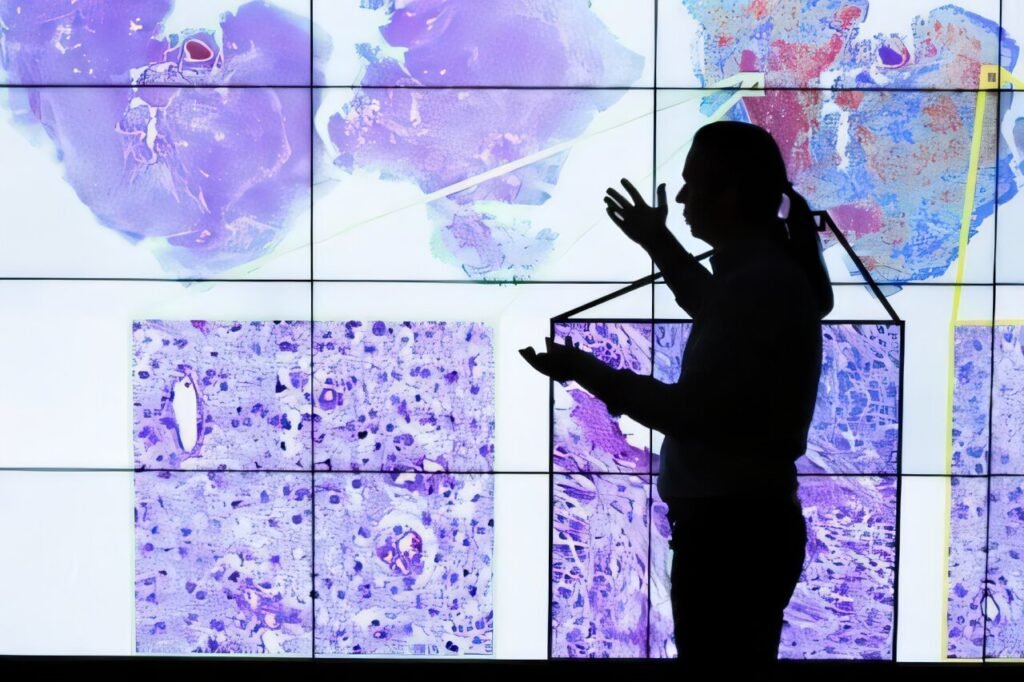A groundbreaking study led by Indiana University School of Medicine’s Spyridon Bakas, Ph.D., and his team of researchers sheds light on the transformative impact of digital health data, artificial intelligence, and other cutting-edge technologies on cancer research and treatment. Published in Cancer Research, the findings highlight the pivotal role of informatics and AI in revolutionizing the field of oncology.
The utilization of informatics and AI is revolutionizing the analysis of clinical data extracted from cancer patients, spanning medical imaging, electronic health records, lab results, blood tests, and molecular profiling. These technologies expedite the diagnostic process by enabling AI models to detect cancerous cells in tissue samples that may elude human observation. Moreover, AI algorithms excel at swiftly scouring vast repositories of data for pertinent information, accelerating research efforts significantly.
While AI holds immense potential in expediting the identification and analysis of cancer-related data, human oncologists remain indispensable in the decision-making process. AI can assist in triaging known cases swiftly, but the expertise of oncologists is crucial in evaluating and addressing rare cases that may not be well-represented in the AI models’ training.
To harness the full potential of informatics and AI in cancer research, standardizing methodologies and expanding databases are imperative. By refining software tools that facilitate data access and training AI models more effectively, researchers can enhance the precision and efficiency of cancer diagnosis and treatment.
The collaborative effort involved nearly two dozen co-authors from prestigious institutions such as the University of Maryland, Johns Hopkins University, and Harvard University. As lead author Kathleen Noller, Ph.D., emphasizes, the burgeoning field of Cancer Informatics holds promise for predictive and precision care for cancer patients, driven by cutting-edge technologies and innovative methodologies.
The study underscores the critical need for continuous advancements in cancer informatics to propel the development of personalized treatment strategies and improve patient outcomes. By leveraging the power of AI and advanced data metrics, researchers are forging a new era in cancer research that holds immense potential for enhancing diagnostic accuracy and treatment efficacy. The future of oncology lies at the intersection of technology and human expertise, where collaboration between AI systems and skilled oncologists paves the way for groundbreaking discoveries in the fight against cancer.


